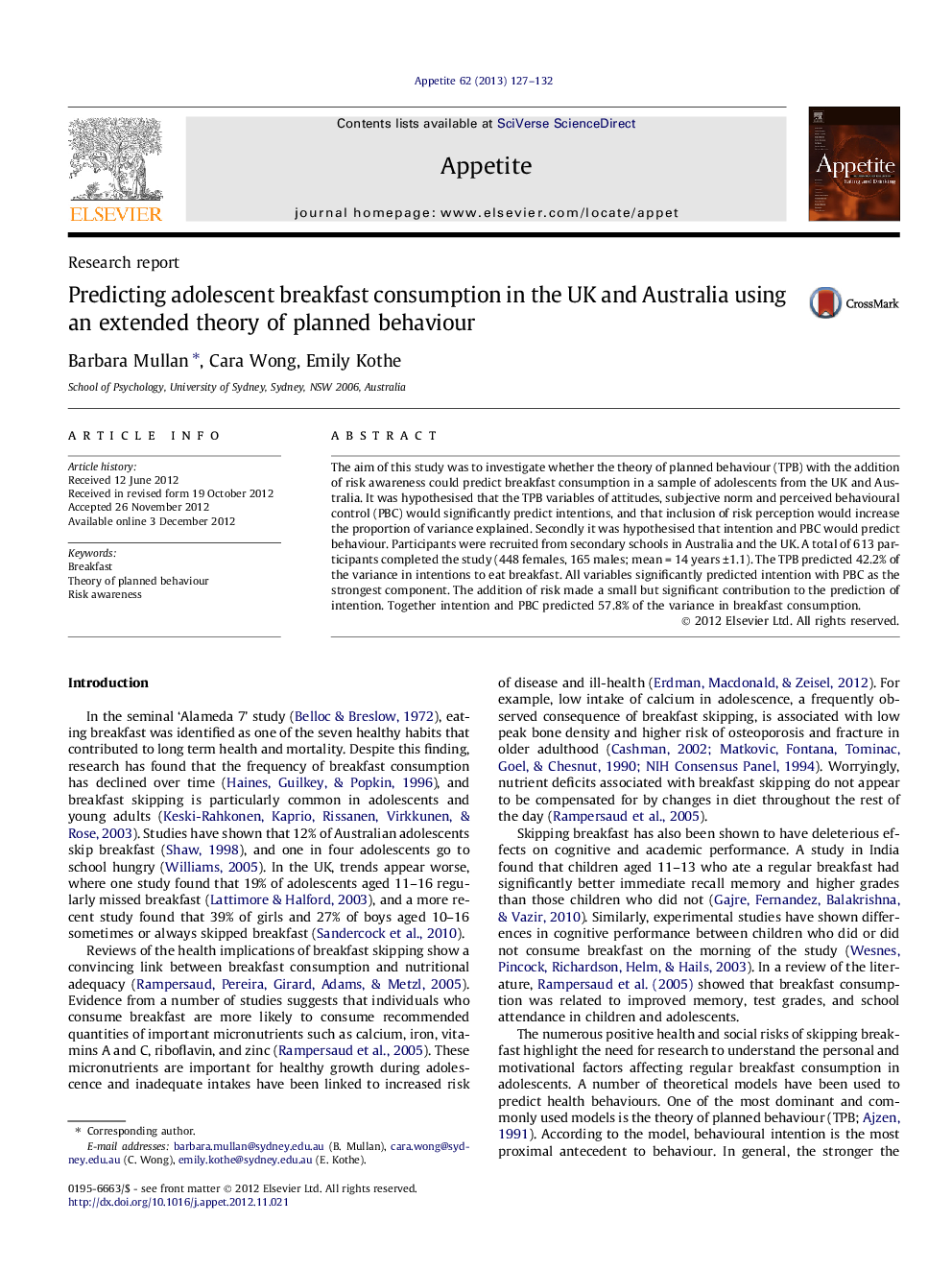| Article ID | Journal | Published Year | Pages | File Type |
|---|---|---|---|---|
| 939809 | Appetite | 2013 | 6 Pages |
The aim of this study was to investigate whether the theory of planned behaviour (TPB) with the addition of risk awareness could predict breakfast consumption in a sample of adolescents from the UK and Australia. It was hypothesised that the TPB variables of attitudes, subjective norm and perceived behavioural control (PBC) would significantly predict intentions, and that inclusion of risk perception would increase the proportion of variance explained. Secondly it was hypothesised that intention and PBC would predict behaviour. Participants were recruited from secondary schools in Australia and the UK. A total of 613 participants completed the study (448 females, 165 males; mean = 14 years ±1.1). The TPB predicted 42.2% of the variance in intentions to eat breakfast. All variables significantly predicted intention with PBC as the strongest component. The addition of risk made a small but significant contribution to the prediction of intention. Together intention and PBC predicted 57.8% of the variance in breakfast consumption.
• We model adolescent breakfast eating using the TPB and risk awareness. • The TPB predicted 42% of the variance in intentions to eat breakfast. • Risk awareness did not make a meaningful contribution to the prediction of intention. • Intention and PBC predicted 58% of the variance in breakfast consumption. • The TPB provides a good model of adolescent breakfast intake.
